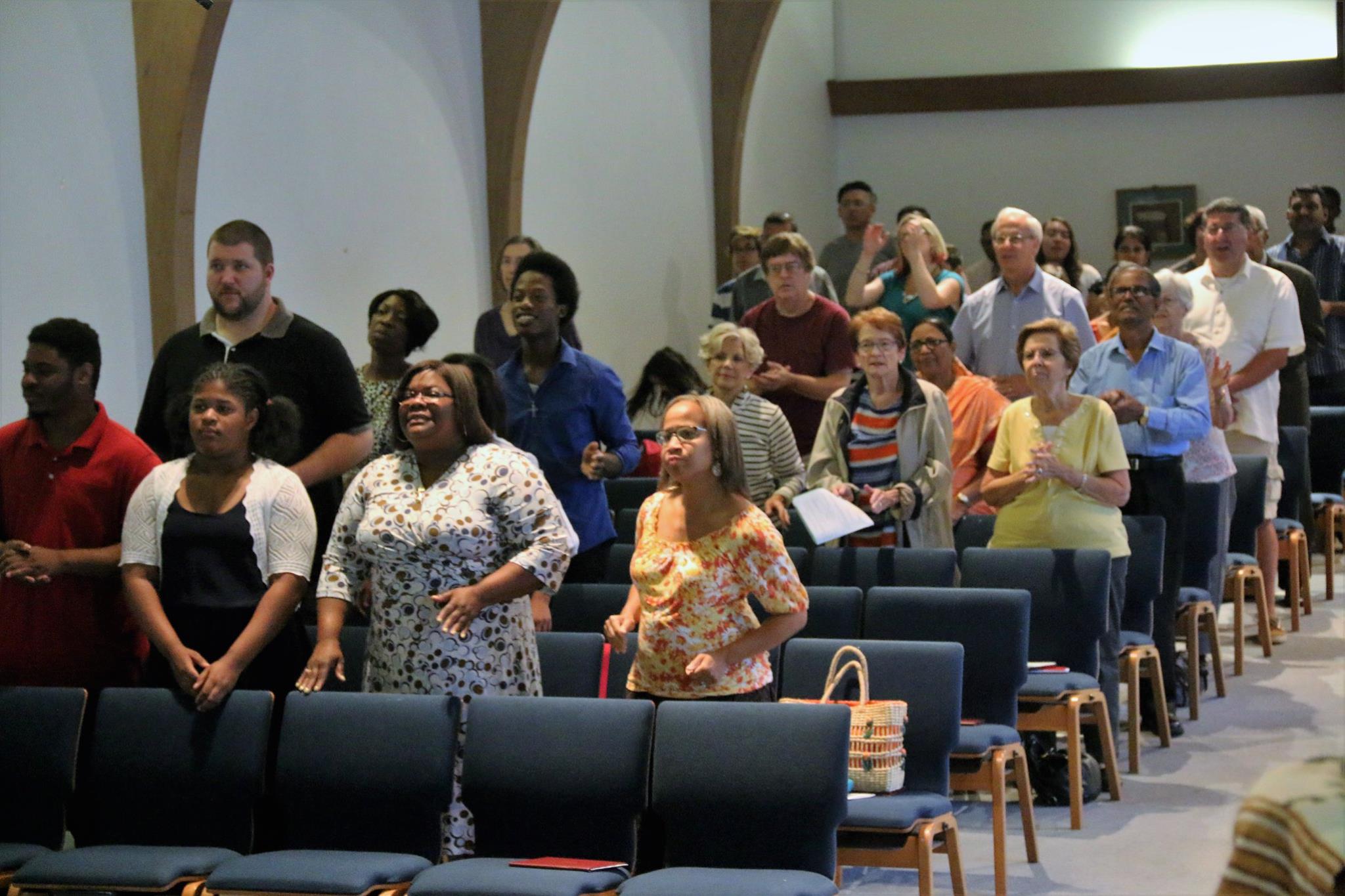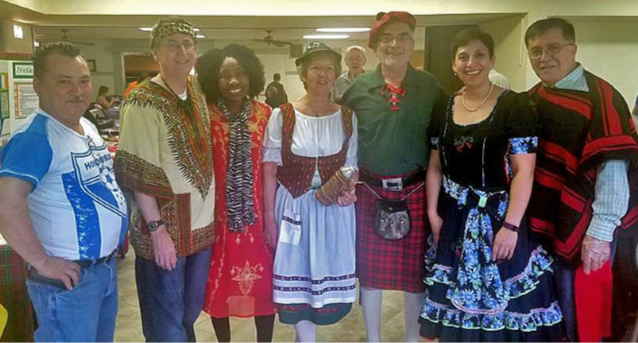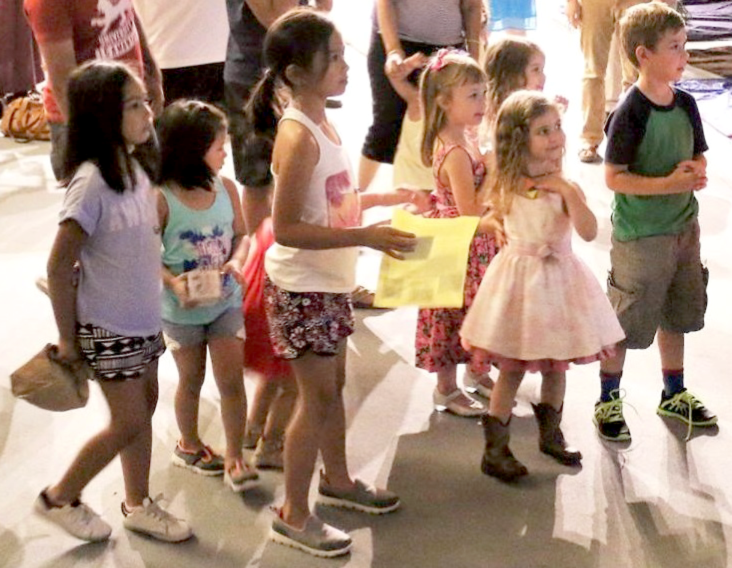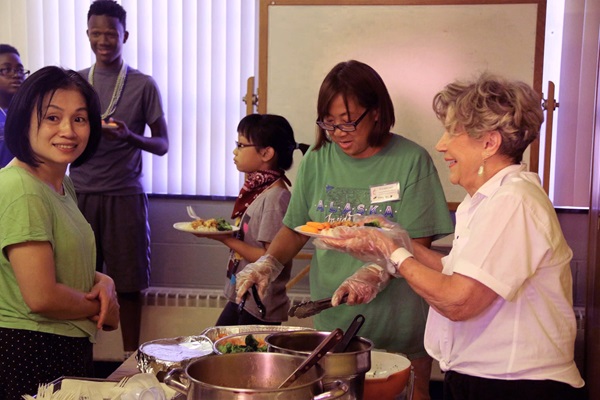"Globalization has changed our whole world; the world is at our doorsteps. Church is changing and neighborhoods are changing," said the Rev. Anna Thomas of Centenary United Methodist Church in Metuchen, New Jersey. "God loves all of us. How do we share that love in this complex, diverse world?"
The myriad of cultures and languages increasingly interwoven in the fabric of the U.S. present abundant possibilities for local churches. But with those opportunities also come challenges – of the unknown, of different backgrounds and of language barriers.
God calls the church to overcome fear, to care for others and to be a community of hospitality and peace. Your congregation can become a place where people from richly diverse cultures and backgrounds come together as unified believers who all speak a common language of love.
"A multicultural, multiracial church is what the church is in the 21st century," said Rev. Thomas.
Breaking barriers
The congregation at Centennial Multicultural United Methodist Church (CMUMC) in Rockford, Illinois, incorporates people from 16 different countries, from Egypt to Sweden to Mexico. With each person coming from such diverse places around the world, finding unity could be difficult, but the church has risen above their differences of culture and language.
Churches like CMUMC have found that the most effective way of breaking down barriers of fear is to inspire people to develop relationships that encourage empathy, patience and understanding.
"We need to see that we are one. Sometimes churches are divided by language or culture, but when you feel you are one and all part of the same family…anything can happen," said CMUMC's pastor, the Rev. Fabiola Grandon-Mayer.
Rev. Thomas, who is from India, agrees. Her church members represent 13 nationalities. She advises churches to "create an environment that is brave rather than safe, where people can share their stories."
"Unless we talk to each other, we always have a fear of others. To overcome that, you have to really connect with people over food or Bible study," she continued.
When barriers feel too strong to overcome, especially when there is no common language, patience is key.
Rev. Grandon-Mayer said, "Even though sometimes we can't communicate [with someone], we know they are part of the congregation. Language isn't a barrier for us; we can communicate through the language of love. We make an effort to understand and show love and tolerance."
"You have to open your eyes and ears," said Rev. Thomas. "Sometimes it will be difficult, but you have to be patient and able to have that understanding to sit and listen."

Uniting in worship
Communication can be a major obstacle when it comes to worshiping as a congregation that speaks different languages, but there are ways to bridge the language gap. Different expressions of worship allow people to relate to, and participate in, the service.
Sometimes a primarily English worship service incorporates different languages through prayers, liturgy or songs. Morgan Stafford, cross-cultural strategist and ministry intern in the Nashville Episcopal Area of The United Methodist Church, suggests incorporating a multilingual worship experience because many young people speak more than one language.
"A bilingual and multicultural service captures the best of both worlds. Everyone can be with their families," he said. "It's less about language and more about hospitality. Relationships can be built without a common language — a lot can be said with a smile."
Some churches choose to have two services, each in a different primary language. Rev. Grandon-Mayer is fluent in English and Spanish, so she leads a worship service in each language every week; but these services are simply two expressions of worship rather than two separate congregations. CMUMC is careful to strengthen unity through frequent joint worship services and churchwide gatherings and events.

Building community — inside and out
Churches that focus on celebrating the cultures and languages represented within their membership often have enhanced opportunities to reach out.
Last Thanksgiving, Centenary UMC hosted a dinner for anyone who needed a place to go to celebrate the holiday. More than 45 people came, bringing diverse food, culture, language and faith to a common table.
"When we can connect with each other, we love each other. We have to make room for new conversations to happen and new relationships to be melded and brought together," said Rev. Thomas.
CMUMC hosts an annual Taste of Centennial event, inviting each congregant to share food, music and customs from their native lands. The community is invited, and attendees have a unique opportunity to travel the world through taste, sound and conversation.
"It shows the community who we are…we are diverse, but we praise one God. We can love each other even though we are all different," said Rev. Grandon-Mayer.

Partnering in ministry
Relationship-centered ministry also extends outside of the congregation. Meaningful, fruitful ministries are born when there is a willingness to connect with people and to embrace a deeper understanding of the cultures, languages, needs and abilities found in the community.
Stafford recommends an assets-based approach when discovering ministry opportunities. "It's so important to get to know your neighbors. Churches should seek to be in relationship first rather than focusing on worship or event planning," he said. "Ask, 'How can we be in ministry with the community rather than for or to?' Once the relationship is there, the engagement follows."
CMUMC has built a strong relationship with the children in their community. For the last 25 years, they have hosted a Saturday Kids' Club that offers food, fellowship and activities. Centenary UMC offers an all-ages Vacation Bible School every summer, where 80 diverse people come together for nightly worship, connection and a family experience.
"So often, the innovative work is simple: partnering with schools, inviting neighbors to church. It doesn't require a lot of money; it takes energy and some sacrifice of time. Many hands make light work," Stafford said.
Leading the way
Church leaders are instrumental in encouraging openness among the congregation and in setting a tone of inclusivity. Pastors and lay leaders who reflect their congregation's diversity can also open doors to people searching for a faith home that encompasses their identity, providing a familiar place to belong and connect.
"Different cultures reflected in leadership bring a different mentality and different ways of reaching out," said Rev. Thomas. "It is hard, but when we create a brave space for [people] to voice fears and give opportunities to reconcile, a lot can be achieved…This is the future. Globalization is not going to stop."
Stafford advised, "Diversity does not happen by accident. Model the change you hope to see within the congregation."
*Laura Buchanan is a PR Specialist at United Methodist Communications

